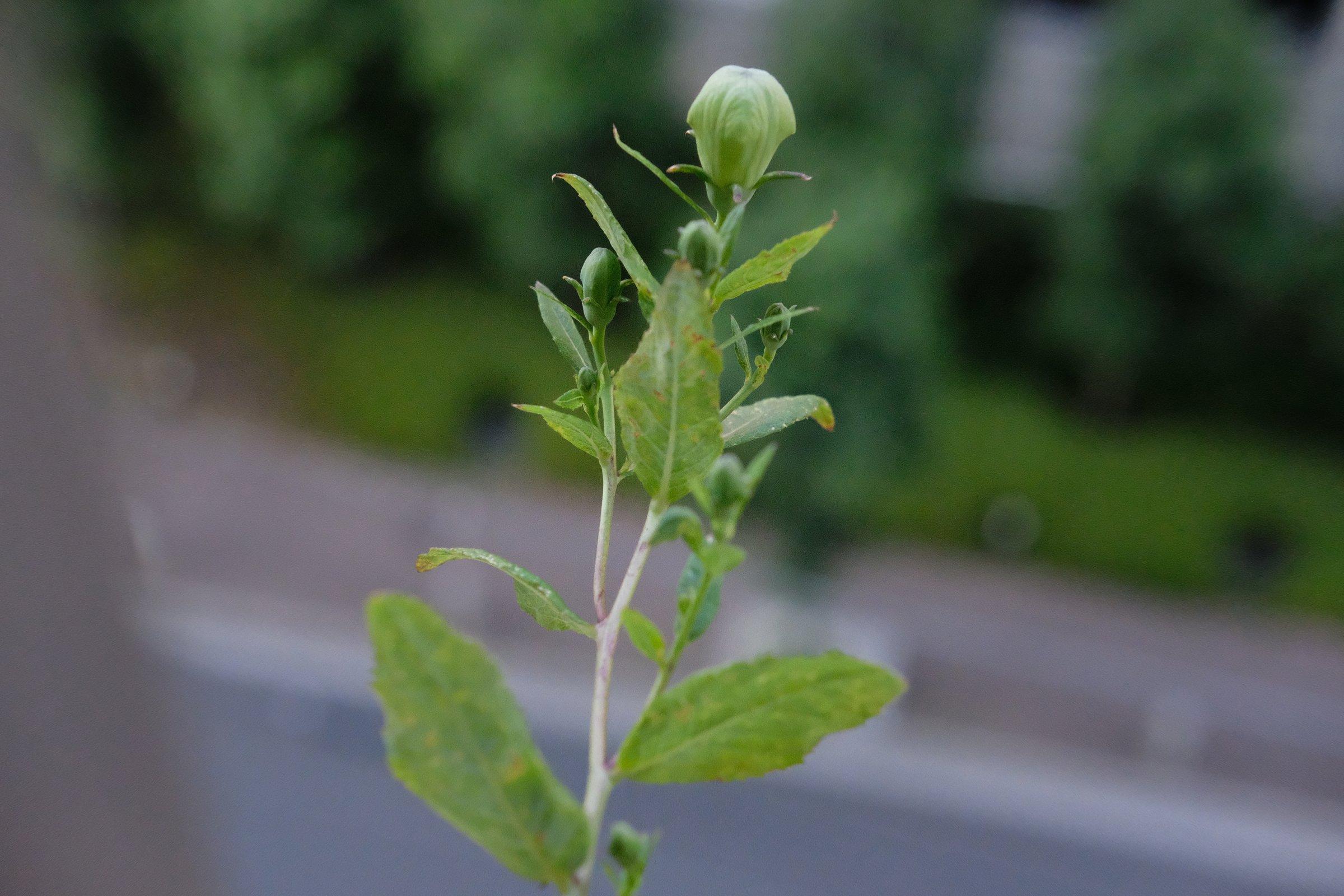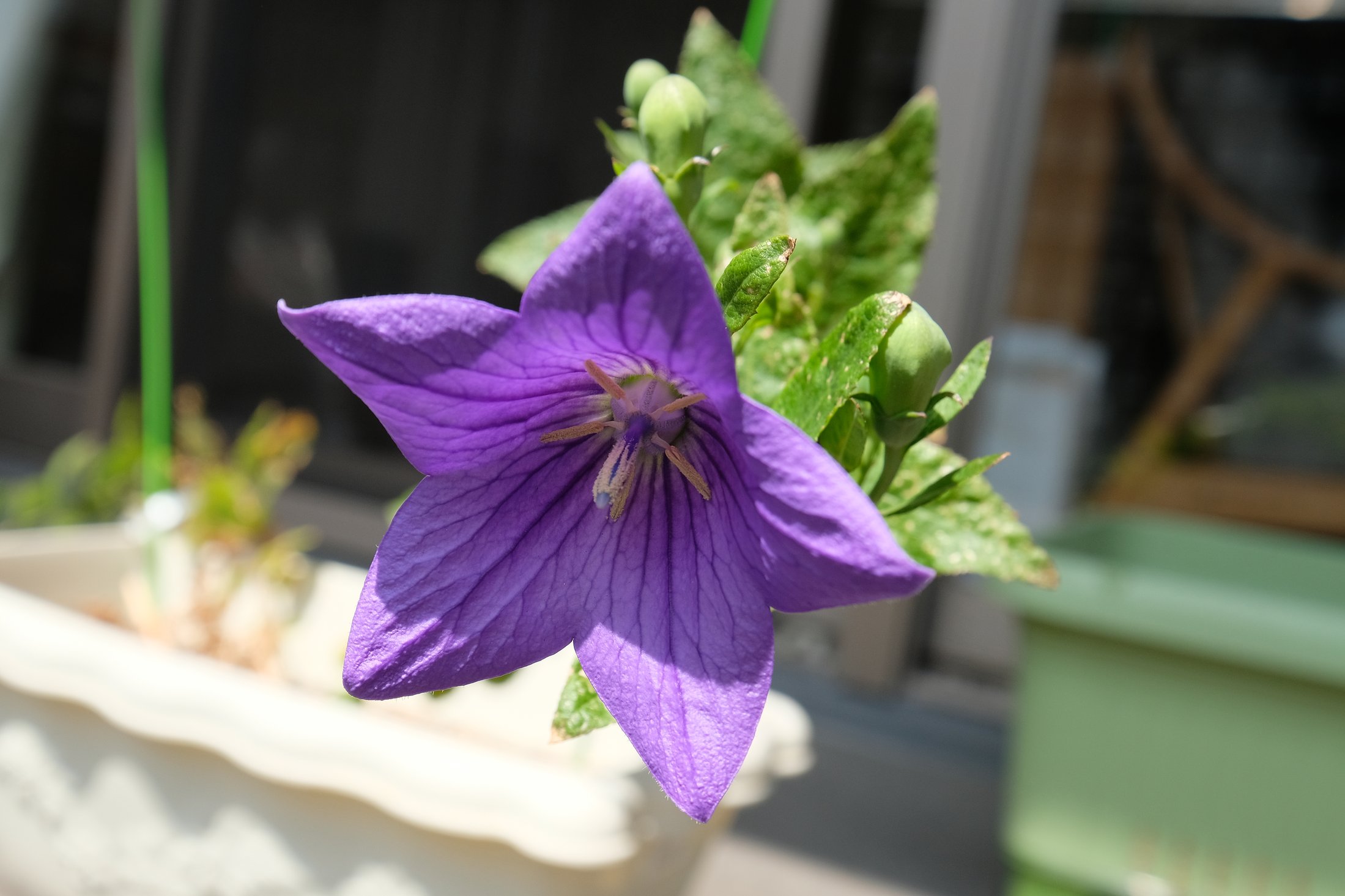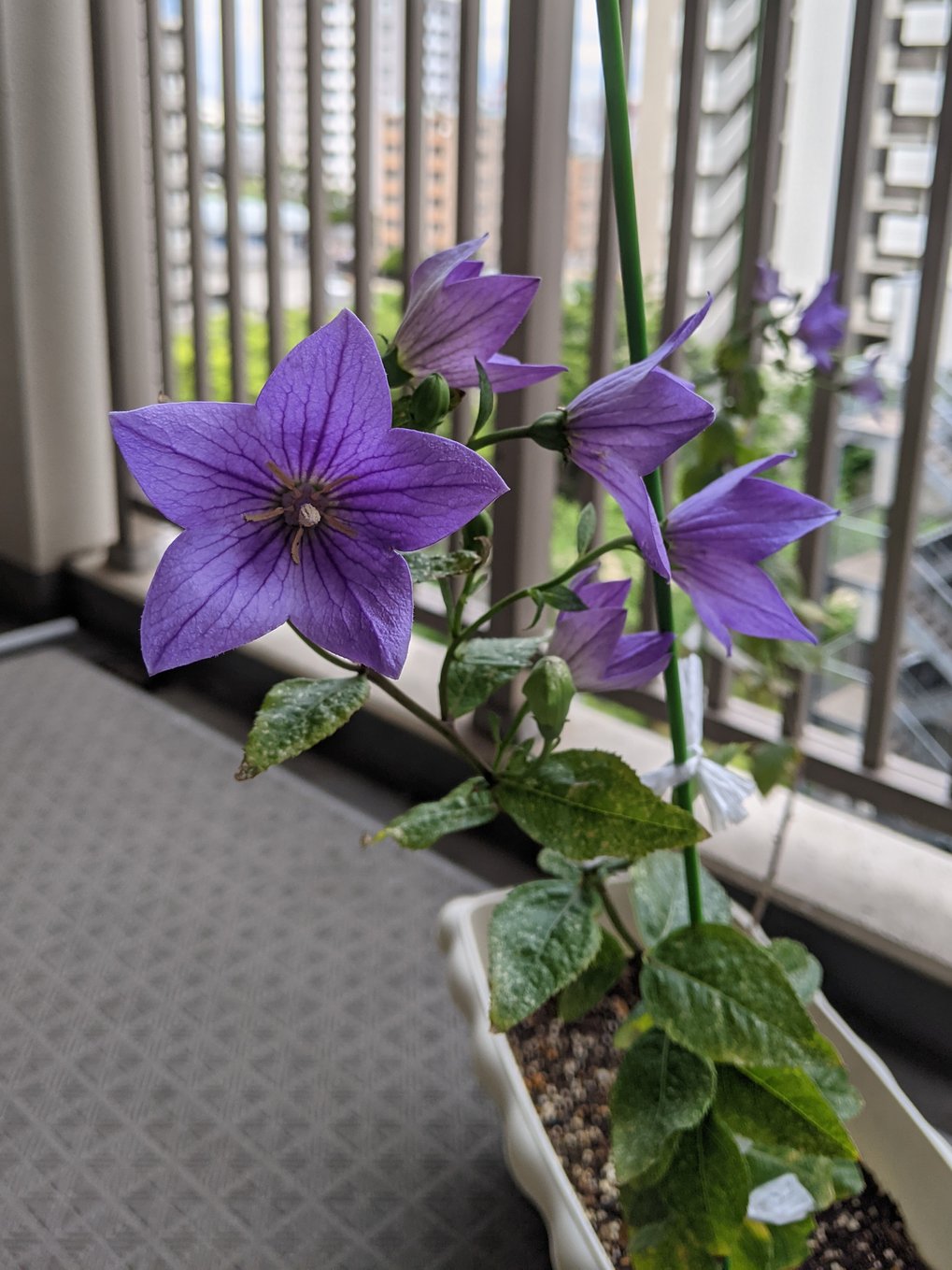The second year of platycodon planting update
The leaves of bellflowers will wither in winter, but the roots that grow underground like ginseng will enter a dormant state. When the daytime temperature is about 17 degrees Celsius in spring, new shoots will re-emerge.
The bellflowers I planted on the balcony were already withered before the winter last year, the above ground parts were completely dead. The last remaining strong bellflower seemed to gradually enter dormancy after the temperature dropped below 10 degrees Celsius, but it was really difficult to judge whether there was still a chance to re-germinate. I still gave it water some time to keep the soil slightly moist.
This spring, at the beginning of March, three or four months have passed since the dormancy of the bellflower. One day I was checking the plants routinely. I was pleasantly surprised to find that a small shoot appeared next to the dead stem of the bellflowers. Two more shoots appeared few days later. According to their location, they should all re-germinate from the last bellflower last year.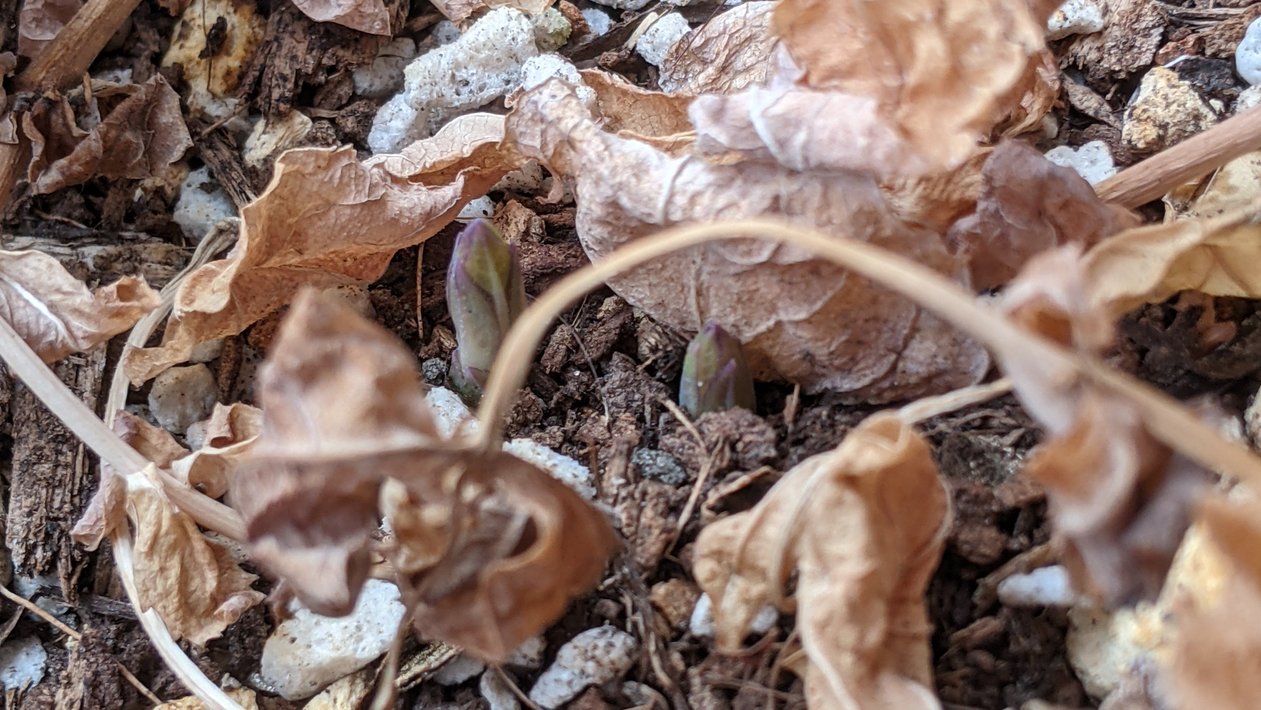
The shoots that grew back in the second year was very different from the new shoots; they were several times thicker and grew much faster. They can grow one or two centimeters tall every day, and by the end of March, there were three strong bellflowers.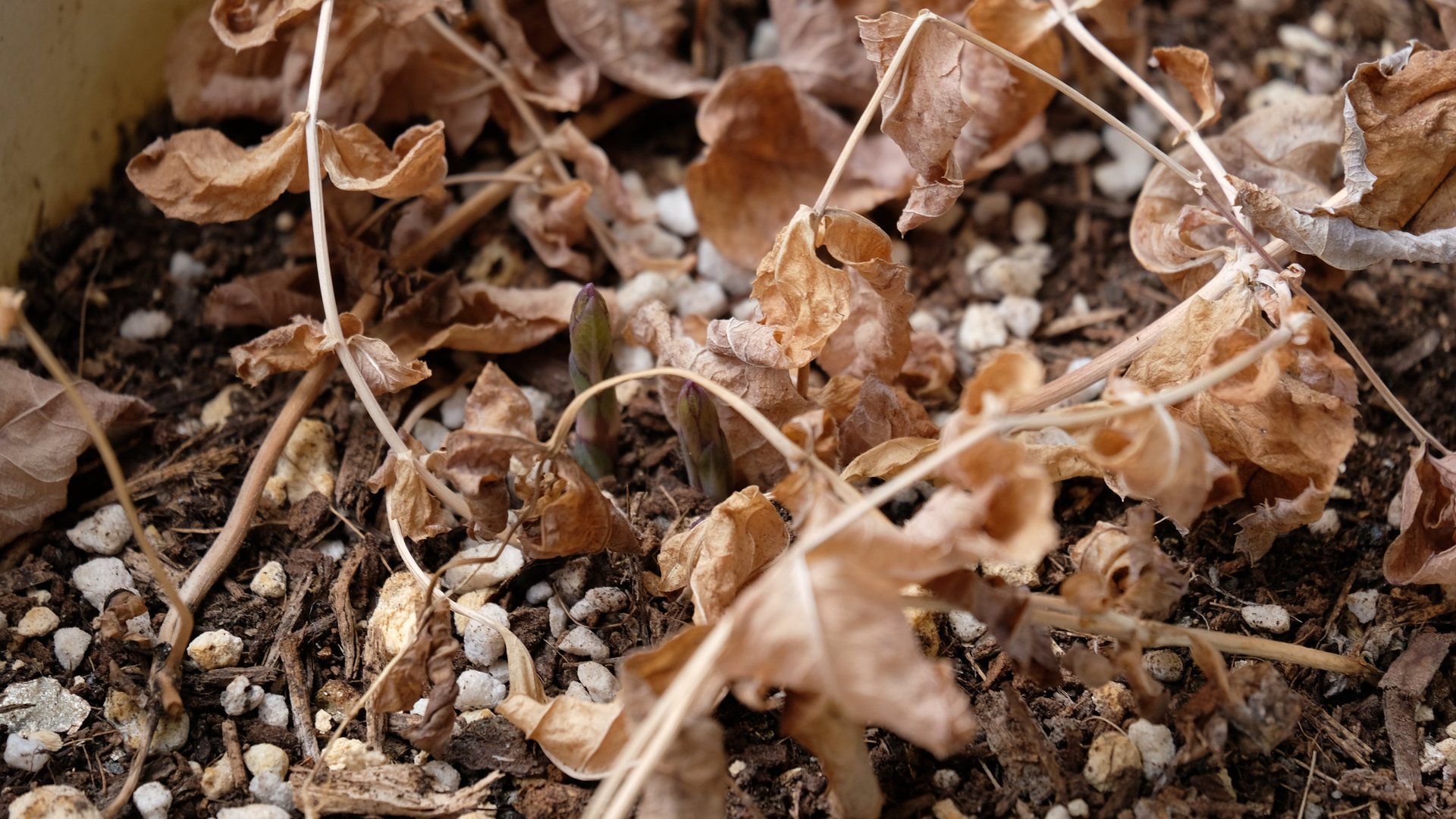
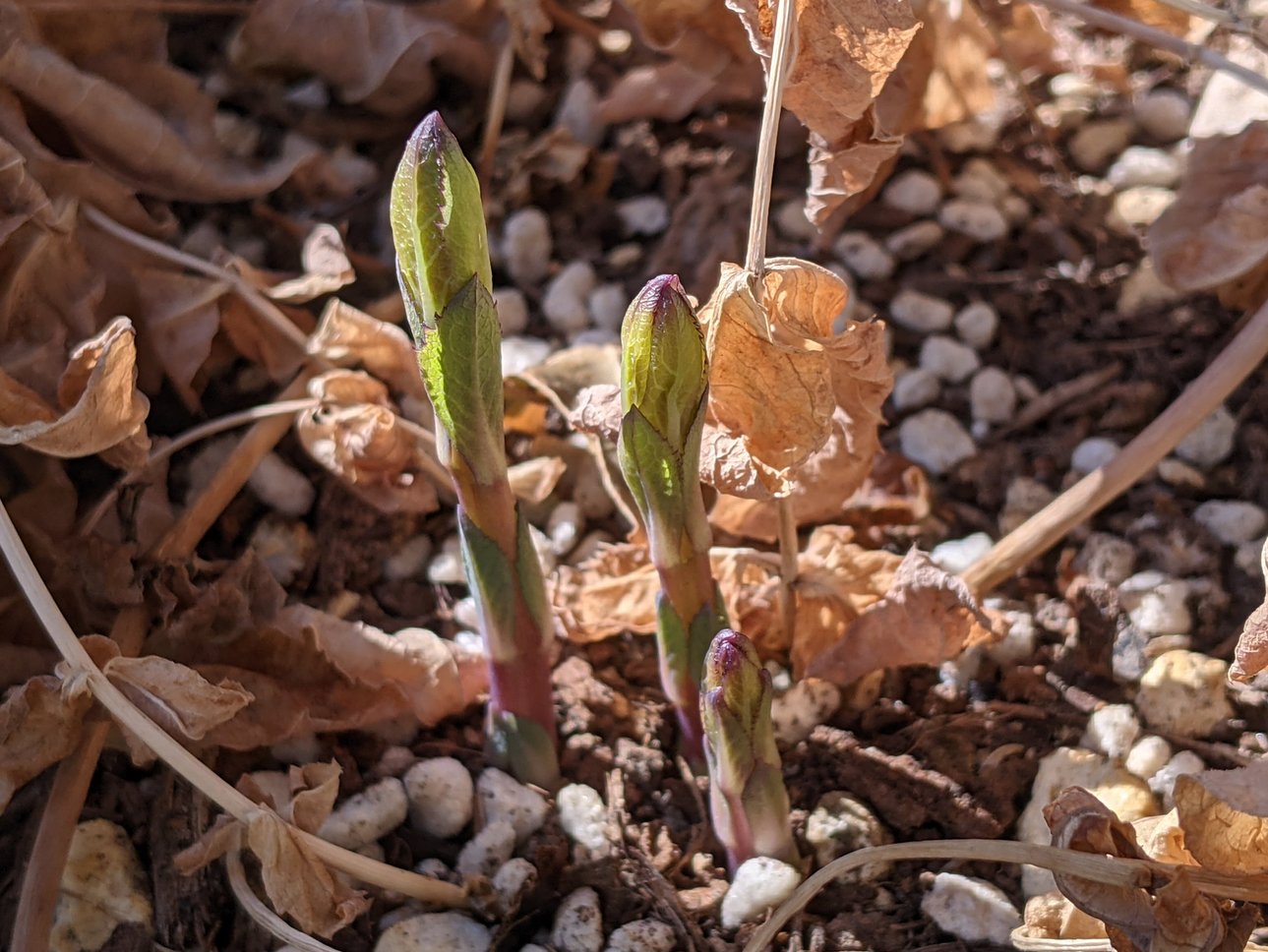
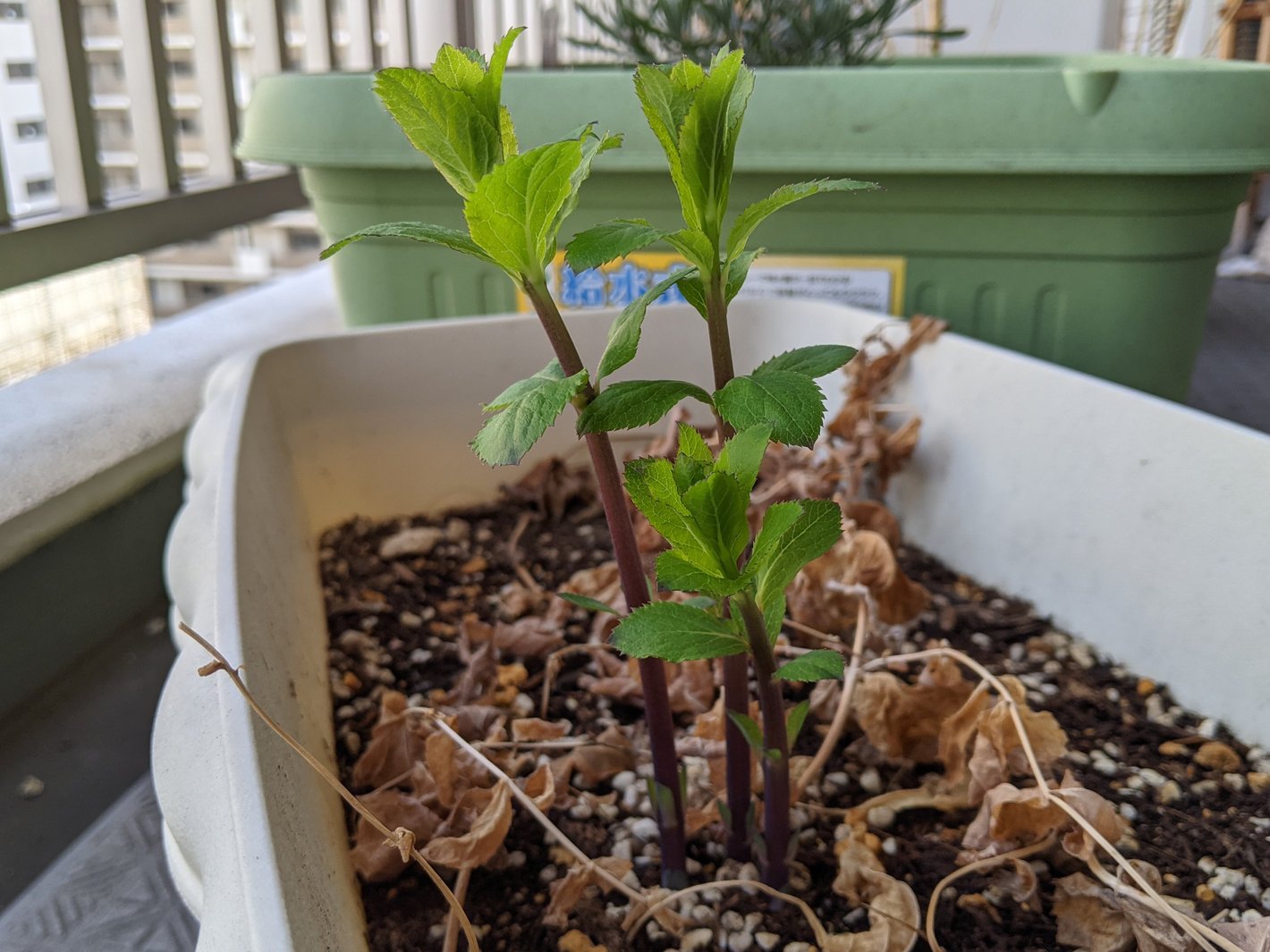
In mid-April, all the leaves have been unfolded and have grown to about 15 cm. After that, because I had to go back to Taiwan temporarily, I set up an automatic watering device for them. There was no record for more than a month due to that. I could only hope that they could survive.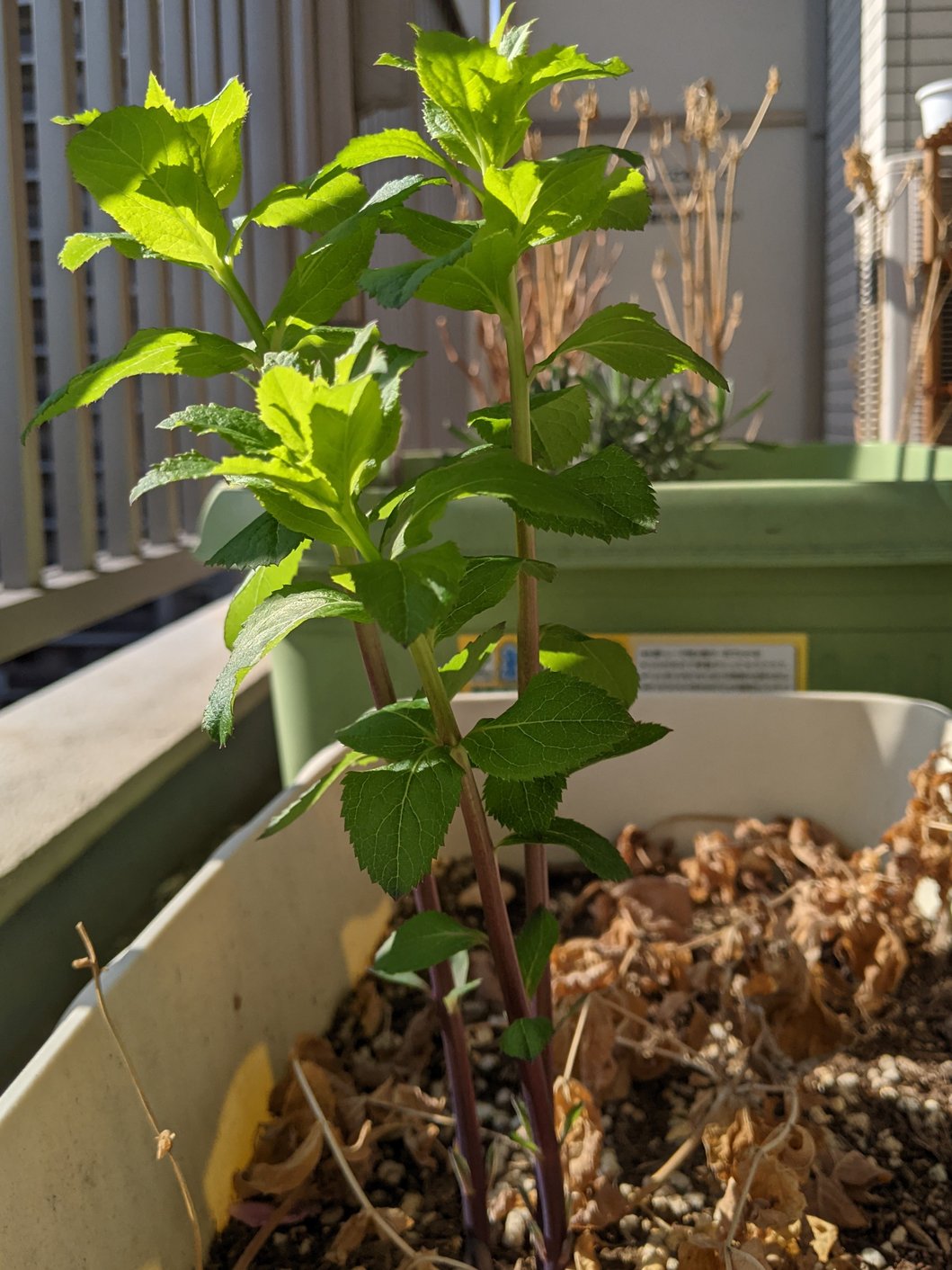
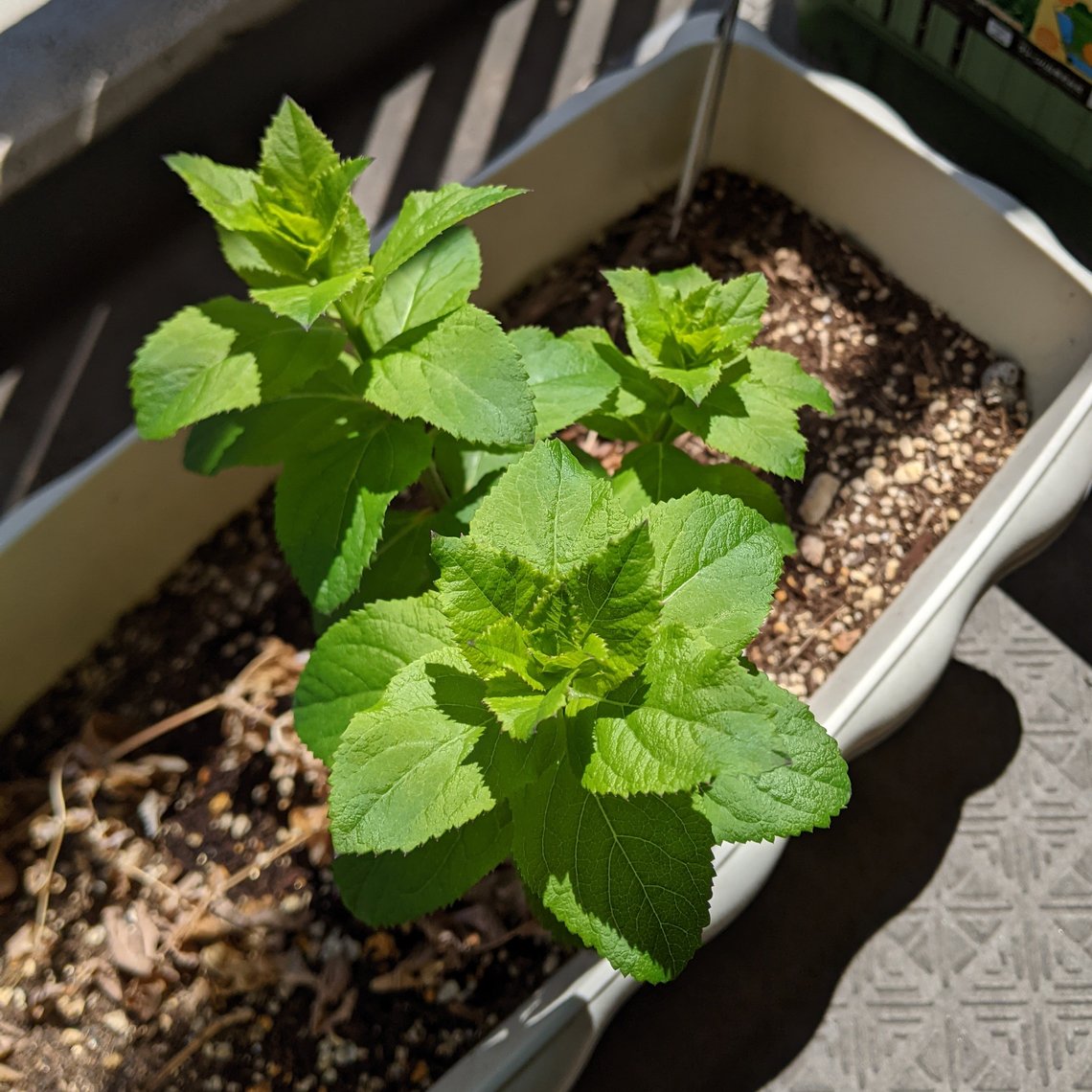
When I came back from Taiwan, what I saw was that although they hadn’t withered, they grew into having long and staggered stems. I thought that the stems, which were several times thicker, should be able to grow stronger, and would not lie down on the ground as they did in the first year. They may have grown crooked due to lack of pruning and insufficient sunlight this spring.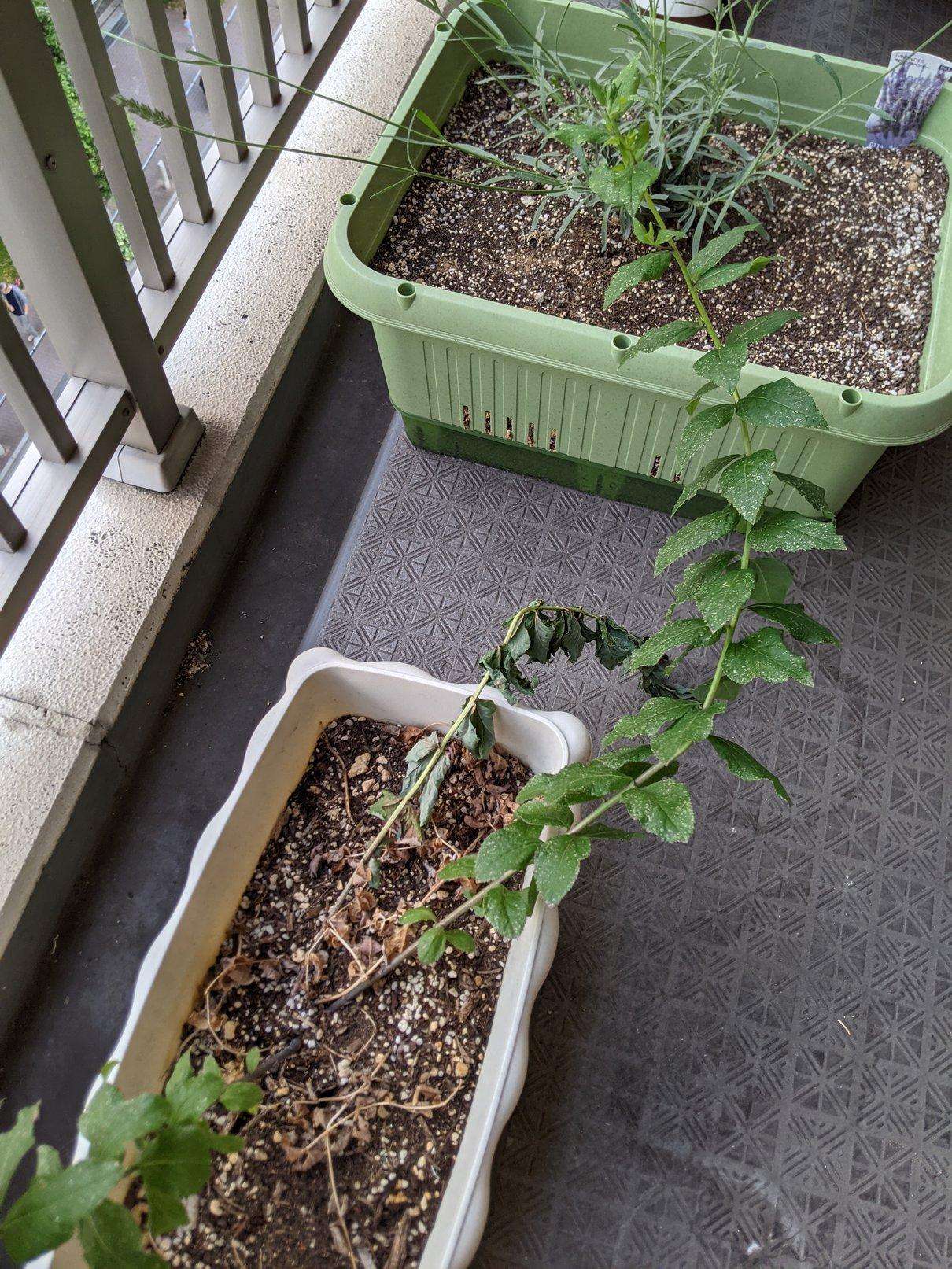
One of them seemed to have been broken by strong winds and was half withered, so I cut it to the base altogether. The other two were also infected with fungi that were present in the first year because they were not growing well, and there were many white spots on the leaves.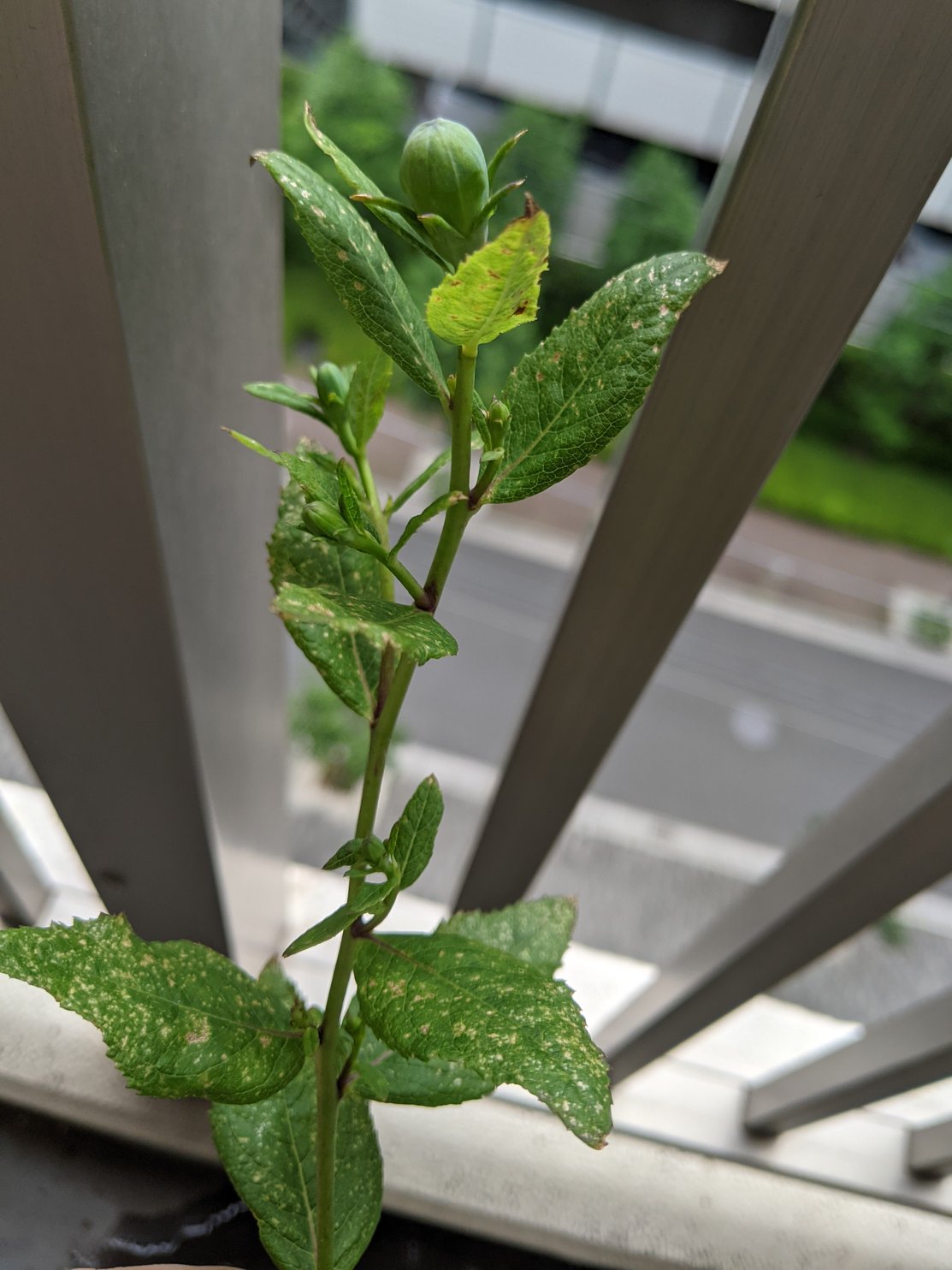
In mid-June, although the leaves were still unhealthy, the buds continued to grow out one after another. The difference from the first year is that there were a lot of buds, and the highest record was nine at the same time!